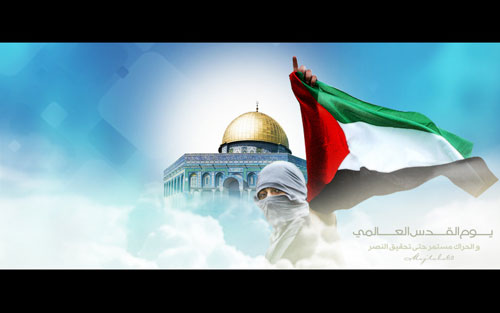Alwaght-The terrorist group of Islamic State of Iraq and the Syria (ISIS or DAISH) was formed by Abu Bakar al-Baghdadi in 2010. This terrorist group is the offshoot of Islamic State of Iraq (ISI), a terrorist group founded by Abu Omar al-Baghdadi, the head of the Mujahideen Shura Council, an umbrella organization composed of eight terrorist groups, and its successor, the Islamic State of Iraq. Abu Omar al-Baghdai died in 2006 during a joint operation of American and Iraqi forces near Tikrit.
The ISI terrorist group was the successor organization of al-Tawhid wal-Jihad terrorist group, an al-Qaida linked terrorist formed in 1990s in Faluujeh and Ramdi by Abu Musab al-Zarqawi, a militant from Jordan who ran a paramilitary training camp in Afghanistan. In late 2004, he joined al-Qaeda, and pledged allegiance to Osama bin Laden. After this al-Tawhid wal-Jihad became known as Al-Qaeda in Iraq (AQI), and al-Zarqawi was given Al-Qaeda title, "Emir of Al Qaeda in the Country of Two Rivers".
Upon the outbreak of Syrian war in 2011, the ISI terrorist group sent its members in guerrilla warfare into Syria. They formed al-Nusra Front or Jabhat al-Nusra headed by Abu Mohammad al-Jawlani. Accordingly, the ISI terrorist group changed its name to Islamic State of Iraq and the Syria (ISIS). After a while, al-Nusra Front, being backed by some western and regional countries, disobeyed ISIS and announced its independence in 2012 that led to violent clashes between ISIS and al-Nusra Front.
The Wahhabi terrorist groups in Iraq, including ISIS allied with Ba'athis, the reminders of the Saddam regime, because they were also against Shiite central government. Despite their differences, Ba'athis and ISIL terrorist group have common goals that bring them together, such as fighting against occupiers, i.e. America and its allies, hampering democratization process, and fighting central Shiite government.
After fall of Saddam in 2003, the Iraqi government decided to try his reminders, Ba'athis, for their crimes against the Iraqi people; but it was stopped due to America's interference. The American official also interloped in ratification of constitutional law in 2005. They made Iraqi officials to accept consensus democracy in which premiership was allocated to Shiites, the presidency was allocated to Kurds, and the post of parliamentary spokesperson was allocated to Sunnis. In addition, certain ministries and some other key positions were distributed among Sunnis and Kurds. Accordingly, although all sides were participated in the power structure, vote-winning majorities lost good quantities of its power. Since there were some differences among different sides and minorities that were only seeking to fulfill their demands, a central government was formed which was not strong enough to solve the numerous economic and security problems the country was faced with.
On the one hand, under the America's pressure, Ba'athis were remained in the power, particularly in the army, those who fled, and abandoned Mosel, 400 km northwest of Baghdad and the capital of the Nineveh Province, when the ISIS terrorist group, numbered approximately 1,500, invaded Mosul on 6 June, while there were at least 15 times more Iraqi forces. On the other hand, terrorist groups such as ISIS have continued their attacks against the Iraqi people and have become stronger with the support of some retrogressive regional countries.
Saudi Arabia is the most important supporter of Wahhabi terrorist groups around the world, particularly in Iraq. Al-Saud, dictatorial monarchy of Saudi, has spared no effort to topple Iraqi democratically elected government. It has supported terrorist groups financially and has armed them to overthrow government. The Saudi regime, from the very beginning, apposed democratization process in Iraq and did not appoint ambassador to Iraq, since firstly, it is the enemy of Shiites and secondly, it is afraid of pro-democracy movements spill-over their country. Indeed, through backing terrorist groups, Saudi regime both seeks to defeat its self-claimed arch-enemy, i.e. Shiites and to scare people about the fate of newly democratized regional countries and numerous security and economic problem; they may be faced, in order to dissuade them from suing for democratization. Saudi regime intensified its supports for terrorist groups after Iraq's third parliamentary election and the victory of State of Law party, headed by Nouri al-Maliki.
Meanwhile, Turkey that daydreams about becoming the leader of the Islamic world supports the ISIS terrorist group and gains great benefits from buying Iraq's low price oil from the ISIS.
Zionists who know that their illegal existence relies on crises in the region are also supporting terrorists. At the same time, they are planning for Iraq's dissolution. In a clear interference, Netanyahu called for the establishment of an independent Kurdistan in Iraq. In what signaled a deepening of ties, Zionist regime took its first delivery of oil from Iraqi Kurdistan’s new pipeline, which runs through Turkey.
America that had limited Iraq's government authority through imposing consensus democracy and forcing government to use Ba'athis in power structures, has stood aside letting terrorists kill innocent Iraqi people. Despite long-term security pact between Iraq and America, and Americans' claim for fighting against terrorism all over the world, they are indifferently observing the events, saying that the Iraq crisis is a sectarian war resulted from Nouri al-Maliki's wrong policies. It is crystal clear that the ISIS terrorist group is affiliated to al-Qaida. America invaded Afghanistan in 2001 on the pretext of fighting against terrorism that today in Iraq and Syria are considered as Sunnis looking for their legal rights.
The strategies, taken by America and some regional countries, indicate that war on terror is nothing more than a hypocritical slogan. This motto is only a rotten pretext for international powers to fulfill their interests. Whenever terror puts their interests at risk, they react harshly against it, but whenever terror serves their interest, not only they stand aside but also they spare no effort to support it. Indeed, although, al-Qaida gave birth to ISIS, it was the west and some regional countries that have nourished this wild killing-machine.



























